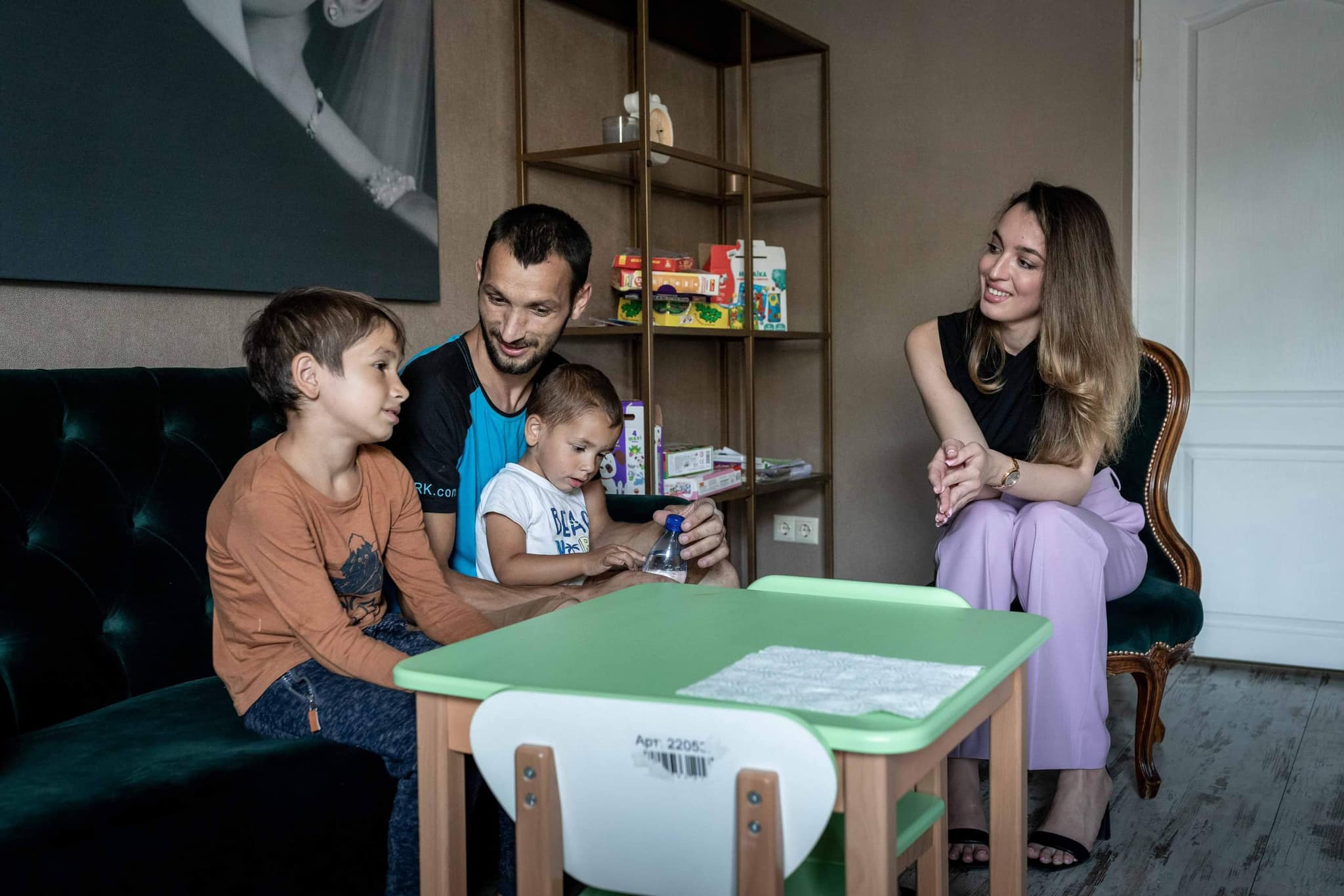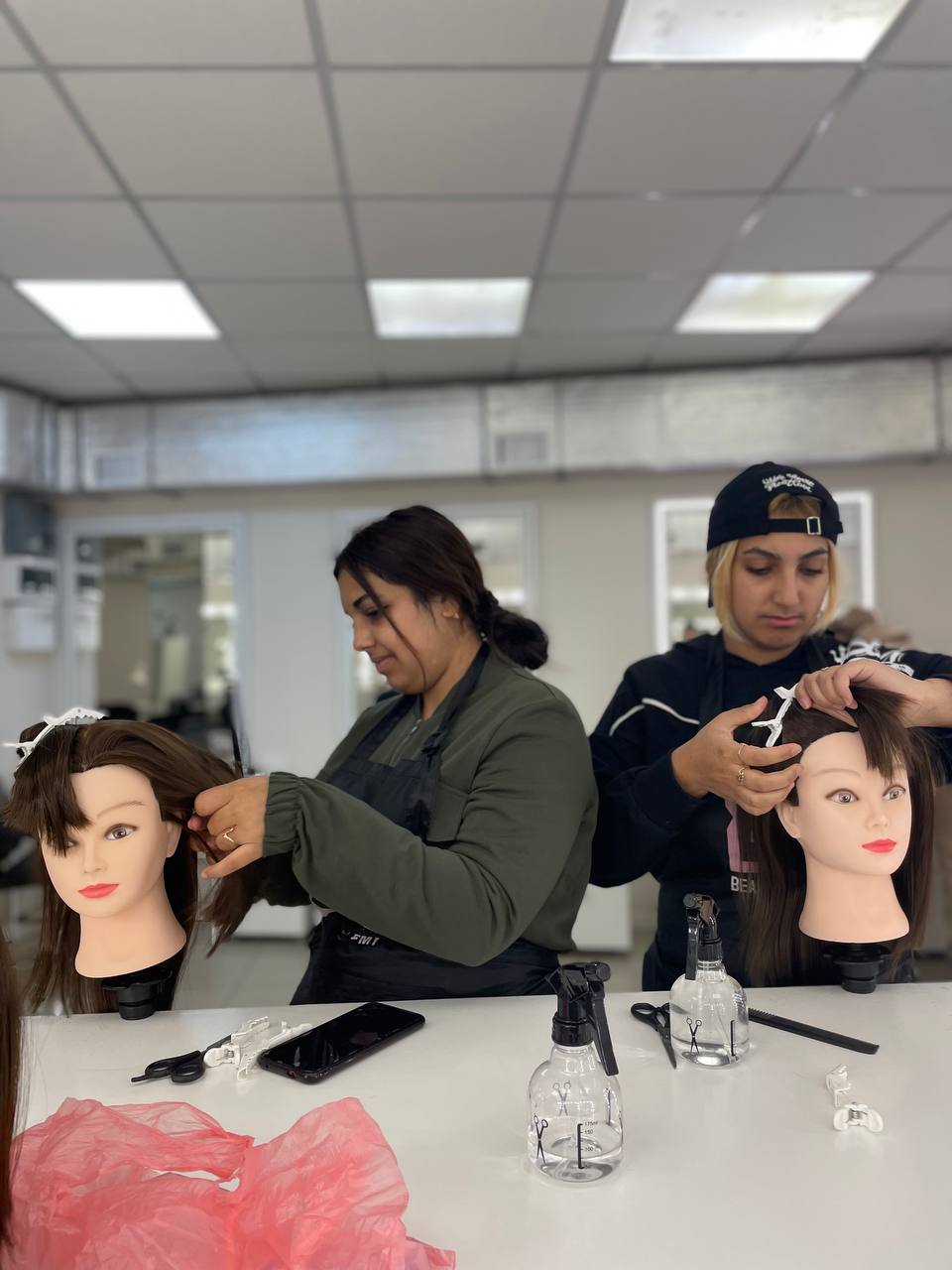“I Want to Build a Community of Influential Romani Women and Girls”: Anzhelika Bielova, President of the Public Organization "Voice of Romni"
Date:
Approximately 400,000 Roma people live in Ukraine, but there is no exact count, as many still lack official registration documents. Housing issues, difficulties in finding employment, and low incomes are the key challenges according to a survey conducted among Roma people in May 2023. Anzhelika Bielova, a Romani activist from Zaporizhzhia, founded the organization "Voice of Romni," which helps Romani women overcome difficulties, achieve self-realization, and improve their economic situation.
The projects of "Voice of Romni" are supported by UN Women in Ukraine and the UN Women’s Peace and Humanitarian Fund (WPHF). In this feature, Anzhelika discusses the impact of war on Romani communities, gender-based violence, and ways to enhance the well-being of Romani women.
“Making the Voices of Romani Women Heard”
Anzhelika Bielova is the president of the organization "Association of Romani Women ‘Voice of Romni’." The organization was established in 2020 in Zaporizhzhia, Anzhelika’s hometown. By 2023, the team had grown from 4 to 60 people. The mission of the organization, "Making the voices of Romani women heard. Helping without prejudice," is not just a slogan but a set of concrete actions. In March 2024, Anzhelika Bielova participated in the Ukrainian delegation at the 68th session of the United Nations Commission on the Status of Women in New York, USA.
"I know how hard it is to be a Romani woman because we face discrimination not only outside the community but also within it," said Anzhelika Bielova.

The Impact of War on Roma People
With the full-scale Russian invasion of Ukraine, additional challenges arose in finding new housing for internally displaced Romani women and girls, as well as providing humanitarian and financial aid.
As of May 2023, only 25% of Roma men and women were employed, while 43% were unemployed but actively seeking work. Another 30% were neither working nor looking for jobs, with 79% of them never having tried and only 16% having attempted unsuccessfully in the past. The main reasons for unemployment included age, health conditions (such as disabilities), and childcare responsibilities.
In all key regions with the highest Romani populations, employment rates remain low: 14% in Dnipropetrovsk Oblast, 24% in Zakarpattia Oblast, 26% in Odesa Oblast, and 34% in Zaporizhzhia Oblast.
"In western Ukraine, many Romani women live in compact settlements without gas or access to clean water. Poverty in these communities is extremely severe," Anzhelika shared.
However, Bielova emphasizes that Romani communities are not homogeneous in their levels of well-being and needs. This is why local organizations play a crucial role in providing critical humanitarian assistance to those in need. Many vulnerable groups lack documentation to access services and may not even know where or how to seek support. As part of a project with WPHF, coworking centers for women and girls were opened in Uzhhorod, Zaporizhzhia, and Kryvyi Rih. These spaces include children's rooms, learning areas for mothers with multiple children, and single mothers pursuing education.

Education and Employment for Romani Women and Girls
To enhance the socio-economic well-being of women, the team provides vocational training and job placement assistance. The UN Women’s Peace and Humanitarian Fund (WPHF) supported a project focused on the socio-economic rehabilitation of 100 women who were forced to relocate due to the war.
As part of the project, "Voice of Romni" developed a 10-month educational program to train women and girls in sewing, hairdressing, manicure services, baking, and running their own businesses. In addition to specialized skills, participants gained essential entrepreneurial knowledge, including SMM, business planning, financial literacy, and computer skills. Through this initiative, 100 Romani women received employment assistance.

Following a business plan competition, 10 women and girls received grants to start their own businesses. To support their entrepreneurial endeavors, "Voice of Romni," with the backing of WPHF, provided professional equipment tailored to their specific trades. According to the grant winners, their first clients were family members or friends, allowing them to practice and overcome initial challenges. Many of them have since expanded their customer base and continue refining their business processes, such as financial planning and resource management. Currently, the "Voice of Romni" team is producing video stories showcasing the success of these new entrepreneurs and their future plans.
To enhance its programmatic activities, "Voice of Romni" also received funding from WPHF for the institutional development of the organization. This includes team expansion, development of organizational policies, strategic planning sessions for the next two years, and psychological consultations for staff and volunteers.
“Gender-Based Violence Is a Taboo Topic in Romani Culture
One of the organization's key focus areas is combating gender-based violence, a topic that remains particularly silenced within Romani communities.
Romani women face the highest levels of discrimination. "One of my priorities is fighting gender-based violence. This issue is taboo in the Romani community because of its patriarchal culture. My goal is to start this difficult conversation [about gender-based violence] within the community and develop long-term solutions," Bielova stated.
In 2019, Anzhelika survived an attempted femicide (the killing of women and girls based on their gender) when a man attacked her with a knife near her home. She shared her story in a video as part of the "16 Days of Activism Against Gender-Based Violence" campaign. Despite the attack, Bielova continues her advocacy and awareness efforts on gender-based violence prevention.
"I knew I had to make this world safer for girls and women, for my own daughter," Bielova added. At the time of the attack, her daughter was only four months old.
According to Bielova, lack of education is the main barrier preventing Romani women from accessing information, decent jobs, income, or better living conditions. That is why one of her key messages to the international community is the need for investment in implementing Ukraine's 2030 Romani Strategy. This strategy aims to support the integration and participation of Roma people in Ukrainian society and improve their access to education, employment, services, and official documentation.
Bielova envisions a future where Romani women lead organizations, businesses, and activist movements: "I just want to see a happy Romani community and strong women who know their rights and can achieve whatever they want in life."
****
The "Social and Economic Recovery of Internally Displaced Romani Women" project is funded by The United Nations Women’s Peace and Humanitarian Fund (WPHF) with technical support of UN Women Ukraine. The United Nations Women’s Peace and Humanitarian Fund (WPHF) mobilizes critical support for local and grassroots civil society organizations working on women, peace and security and humanitarian action. WPHF is a flexible and rapid financing mechanism supporting quality interventions designed to enhance the capacity of women to prevent conflict, respond to crises and emergencies, and seize key peacebuilding opportunities.